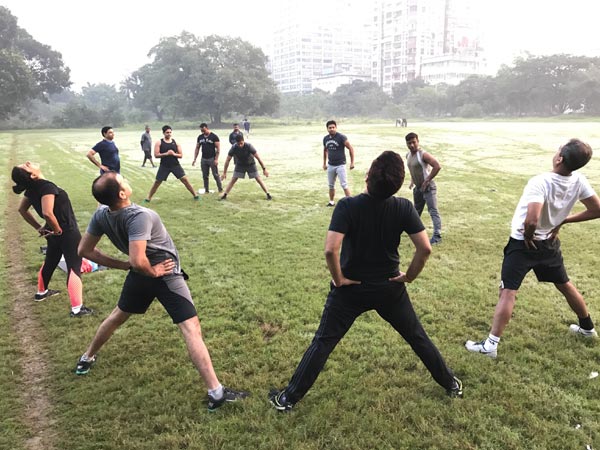
Study finds exercise dose linked to improved cognitive performance in older adults
London, July 8 (IBNS): Staying mentally sharp – that’s aging Americans' highest priority, according to the National Council on Aging.
While thousands of clinical trials suggest that exercising the body can protect or improve brain health as we age, few studies provide practical prescriptive guidance for how much and what kind of exercise.
Now, an exhaustive systematic review of 4,600 clinical trials – led by researchers at the Berenson-Allen Center for Noninvasive Brain Stimulation at Beth Israel Deaconess Medical Center (BIDMC) and published online today in Neurology: Clinical Practice – provides new insight into the optimal dose of exercise– what kind and how much – for maintaining cognitive performance in healthy older adults, as well as those with mild cognitive impairment and dementia.
“While there is solid evidence to suggest that maintaining a regular exercise regimen can improve brain health we were most interested in how we could practically apply these scientific findings to the lives of our patients, their family members and even to ourselves,” said corresponding author Joyce Gomes-Osman, PT, PhD, a post-doctoral research scholar at the Berenson-Allen Center who is also an assistant professor at the University of Miami Miller School of Medicine. “For other forms of treatments such as prescription drugs, patients are prescribed a specific amount. Our study highlights the need to get this specific with exercise, too.”
The team found that nearly any type of exercise, from aerobic exercises such as walking, running and cycling to weight-lifting and mind-body exercises such as yoga and tai chi, can contribute to improved cognitive performance. Interventions that had individuals exercising for at least 52 hours over a period of six months led to the greatest improvement in thinking abilities. Additionally, the most stable improvements in thinking abilities were found in mental processing speed, both in healthy older adults and individuals with mild cognitive impairment.
“It’s very encouraging that the evidence supports all sorts of different exercise interventions, not just aerobic, to improve thinking abilities,” said Alvaro Pascual-Leone, MD, PhD, Chief of the Division of Cognitive Neurology and the Director of the Berenson-Allen Center for Noninvasive Brain Stimulation at Beth Israel Deaconess Medical Center. “The most stable improvements in thinking abilities were found in processing speed, both in healthy older adults and individuals with mild cognitive impairment.”
To conduct the review, Pascual-Leone, Gomes-Osman and colleagues searched the medical literature for randomized controlled trials testing the impact of various exercise regimes on cognition. The initial effort yielded 4,600 relevant studies. After screening those for quality and content, 98 trials including more than 11,000 participants were included in the review.
Taken together, the studies investigated a wide range of exercises (walking, running, weight-lifting, yoga, etc.) and duration of investigation (from as little as four weeks to up to a year). Using a rigorous review process, the researchers averaged and described the parameters used across the studies, revealing the relationships among exercise type, intensity, session duration, frequency and total hours and five categories of cognitive abilities.
Gomes-Osman notes that weekly time spent exercising in minutes – well-known to confer cardiovascular and other physical health benefits – was not correlated with improved cognitive abilities. That could suggest people need more consistent exercise over a longer period of time to achieve benefits in cognitive performance.
“We are still learning about all the ways in which exercise changes our brain, and we are also all different, so identifying an ideal exercise dose remains a challenge,” said Gomes-Osman. “We have many more questions about exercise dose, and we will design further studies to follow up.”
Support Our Journalism
We cannot do without you.. your contribution supports unbiased journalism
IBNS is not driven by any ism- not wokeism, not racism, not skewed secularism, not hyper right-wing or left liberal ideals, nor by any hardline religious beliefs or hyper nationalism. We want to serve you good old objective news, as they are. We do not judge or preach. We let people decide for themselves. We only try to present factual and well-sourced news.







